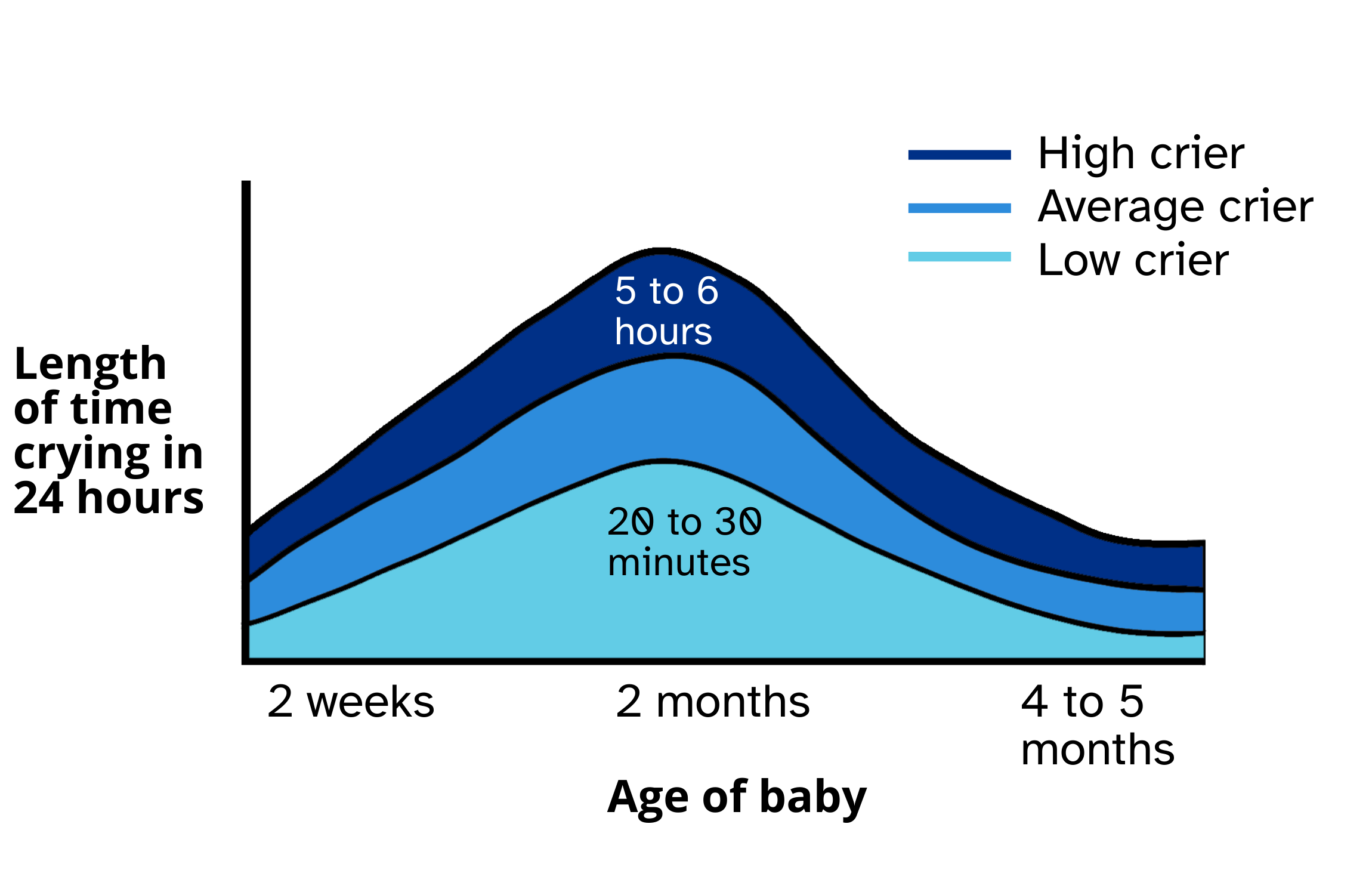Caring for your crying baby - ICON
- 0-1 Years
- 1-5 Years
- Parents and Carers
- Behaviour, emotions and mental health
- Sleep
- Staying safe and accident prevention

I – infant crying is normal
C - comforting methods can sometimes soothe a baby
O - it is OK to walk away
N - never ever shake your baby
Speak to your family, friends or a health professional if you need support. It is never too early to ask for help.
Crying baby facts
It is completely normal for babies to cry. Crying is how your baby tries to get your attention and communicate with you. There are lots of different ways to soothe a crying baby. Sometimes these methods will work and other times they won’t, and this is ok.
Although babies cry a lot, you can expect crying to reach its peak when your baby is around 4 to 8 weeks old. This can be a challenging time.
The normal crying curve

Graph taken from: Barr R G 1990, 'The normal crying curve: what do we really know?' Developmental Medicine and Child Neurology, vol. 32, no. 4, pp. 356-362.
If you feel like you can not cope, it is ok to put your baby down in a safe place such as their cot. You can then take a few minutes to calm yourself. Keep checking on your baby every few minutes until you feel calm enough to soothe them. Never ever shake your baby.
Always ask for help if you think you need it. You can seek support from family, friends, professionals, or online resources. There is a lot of help available but focus on getting the right kind of support to help you.
Top tips to help you and your crying baby
When to worry about your baby's crying
If your baby is crying constantly and it does not sound like their normal cry there may be another cause. There are lots of possible causes but it is important to check if it is colic or if they are seriously ill.
If you think your baby is unwell, contact your GP or call NHS 111.
In an emergency, always call 999.
Looking after yourself with a crying baby
It can be stressful looking after a crying baby. But remember there is lots of support available from friends, family or professionals. It is never too early to speak out and ask for help.
You can also try:
- listening to relaxing music
- spending time with family or friends
- taking short breaks when you feel under pressure
- reading our information on emotional wellbeing for parents
Dad's can now download the DadPad. The app contains information and advice on caring for a new baby as well as looking after themselves and their family.
Last reviewed: 1 November, 2023
